Planning to go touring in France with a motorbike? There are some essential things you need to know before your trip, including important paperwork and what kit to bring with you. Here’s everything you need to know about motorcycling in France.
Don’t forget to grab your FREE motorcycle maintenance checklist below to help you get ready for your trip.
*We work hard to make this the best motorcycle touring & tips website possible. The website is supported by our readers, so if you buy through links on this site we may earn a commission- at no extra cost to you. All opinions remain our own. Ride safe!
Motorcycling in France
If you enjoy motorcycling in the UK or elsewhere, you’re going to LOVE motorcycle touring in France. There’s everything you could want from a road trip, including fantastic campsites by the beach, vineyards and local markets full of wine, cheese and other goodies, incredible history and plenty of places to explore.
France is often the gateway to Europe for anyone in the UK with a motorbike. All too often we rush through as quickly as possible, keen to ride in other locations, like motorcycling in Spain, Switzerland or Italy.
But I urge you to take some time to explore. France has some incredible destinations for biking holidays- see below for great itinerary ideas.
If you’re contemplating taking a motorbike to France, this post will help you plan your trip- and tell you what you need to bring and organise before you leave.
Motorcycle route planner for France- where to go
The best thing about planning a motorcycle tour is that you can literally go ANYWHERE. But that freedom can also be a bit overwhelming- where do you even start?
Before we tell you about the essential things you need to do whilst motorbike touring in France, let’s chat about some of the places you can visit on your France road trip.
Northern France by motorbike route ideas
Again, many people drive through northern France as a way of getting somewhere else, but there a lot to discover here if you make time to explore.
Some of our favourite places for motorcycle trips in Northern France include:
- The Normandy beaches. Everyone should do this at least one
- Mont St Michael- one of the most historical places in France.
- Brittany- one of our favourite areas in France
- The Loire Valley. If you like chateaux and history, this is for you!
- Ile de Re and La Rochelle
- Strasbourg- one of the best and biggest Christmas markets in Europe!
On a side note, I know Paris is in the north of France and we LOVE Paris… but not with a motorbike. It’s chaos. Park up nearby and travel in by public transport or taxi. Driving in Paris is a law unto itself!
RELATED: See our 5 best motorcycling roads in Europe
Motorcycle Route Planner Southern France
We’ve spent a lot of time motorcycling in southern France. Some of our favourite places include:
- The Gorges du Verdon. One of the most spectacular places we have EVER been with our bikes.
- The Pyrenees, especially the Cirque du Gavarnie. It’s jaw-droppingly beautiful.
- French Alps. Exploring the Alps with a motorbike is one of our favourite trips. We also love Lake Annecy and you MUST add the cable car up Mont Blanc to your France motorbiking itinerary.
- Bordeaux and the Dune du Pilat- make sure you allow time to visit some of the incredible vineyards in the area!
Make sure you bring a motorcycle camera or helmet cam– the scenery is spectacular.

Motorcycle in France Advice- when to go
The best time to visit France with a motorcycle or any other vehicle is whenever you have time to explore! Some people pop over on the Eurotunnel for a weekend break. Others take a month to explore one corner.
The beauty of France being so large is that usually there will be at least one area with decent weather. And the beauty of exploring on wheels is that you can go wherever the weather is best for you!
Generally, the best weather in France is between April- October. You may still get decent temperatures into November on the French Riviera (that’s the coast on the Med, not the Atlantic coast.)
It can get VERY hot in summer, especially down south. It can also be amazingly windy- you’ll find many cafes and restaurants near the Mediterranean or Atlantic bolt down their outdoor furniture.
Our favourite times are Spring and Autumn. It’s usually warm, especially in the south, but there aren’t huge crowds and it’s easy to get access to popular tourist places. Be careful on more exposed roads at the foot of mountains- some of the gusts come out of nowhere.
Driving from the UK to France routes
If you’re taking your motorcycle from the UK to France, or if you’re taking a motorcycle camper van, there are a couple of options on how to get over there- ferry or Eurotunnel.
Getting to France by Ferry from the UK
Ferry routes go from all along the south coast and occasionally up the East Coast too. The two main providers are Brittany Ferries and DFDS Seaways.
We enjoy taking the ferry because it cuts down on driving time- we’re travelling whilst we’re sleeping. Also, we’re often driving from South-West England to the west coast of France- so ferry cuts off a lot of that journey.
The downside of taking the ferry is that it’s usually MUCH more expensive and there are less frequent crossings. Also, in bad weather, it can be miserable.
Taking a Motorcycle on the Channel Tunnel
The “Chunnel” is fast, effective and probably the cheapest way to get a motorbike to France, even in school holidays. There are very few downsides, but the biggest is the delays in summer. Sometimes the queues can be HOURS long- and that was before BREXIT. Having said that, they do try and squeeze bikes on wherever they can.
The other big downside is how far you have to ride to get there if it’s out of your way- that’s the main reason we don’t use it as often as the ferry, although if we’re going straight through France to go motorcycling in Germany, the Netherlands or anywhere further east, it makes sense.
Don’t forget, you can use your Tesco vouchers to reduce the cost even further and some clubs also offer discounts.
Best Motorcycle Route to Italy Through France
If you’re planning a route through France to go motorcycling in Italy, we’ve put together some of the best routes for motorcycles and cars.

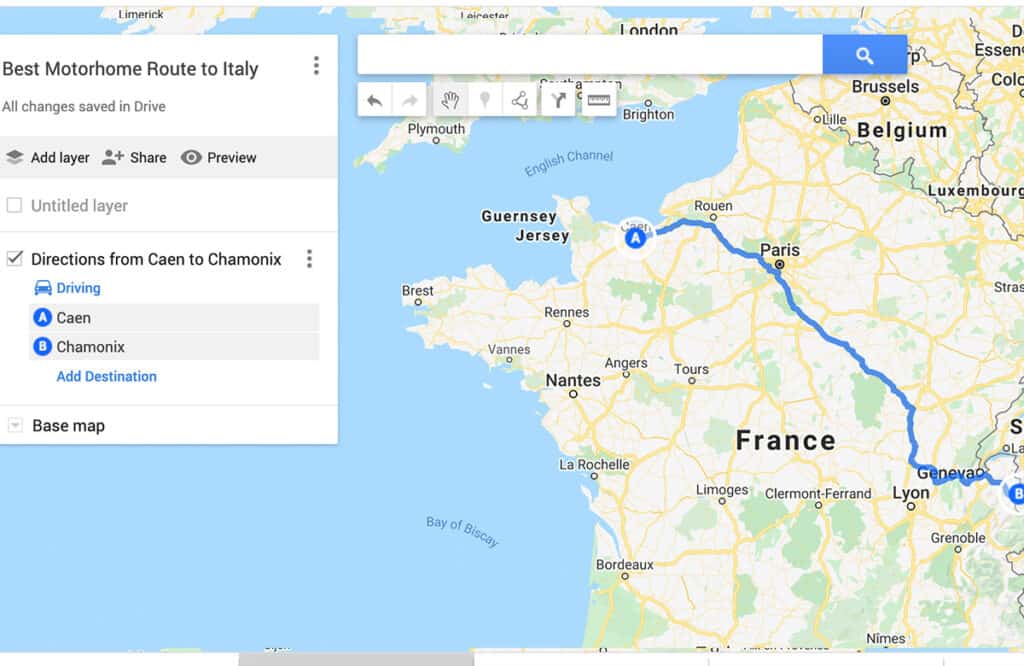

France Route Planner (with maps)
Motorcycle Hire in France
If you don’t have your own bike, or don’t want to take it, you can easily fly into France and hire one. Just make sure to ask how to get from the airport to the rental agency- not all of them are at the airport itself and you might need to book a taxi.
To rent a motorcycle in France most places will expect you to be:
- from 21 years of age, depending on the company’s rental policy; (18 years old for scooters and some very small bikes).
- have a valid driving licence with at least 2 years experience.
- hold a full and valid motorcycle licence for riding in France.
- The vehicle renter must produce his/her current driving licence.
- Minimum age for riding under 125cc is 18 years old & 1 year car driving experience.
- show identification (identity card for EU citizens or a valid passport for other nationalities).
Make sure you have proof that you can take the vehicle across a border if that’s what you’re planning to do.
Don’t forget, it is YOUR responsibility to make sure the vehicle has the required safety equipment. The on-the-spot fines apply to you as the rider, not the company. Check in advance with the company what kit they will provide with the vehicle and what you will need to bring. If you are solo motorcycle touring, remember you’ll need to carry everything yourself, including any motorcycle camping kit.
Take a list of what is legally required with you and check it off one by one as you are given the handover. Do not drive until you are happy you comply with the local laws.
You can expect to pay anywhere from 80€-180€/ day- based on model. Make sure you ask the right questions to know what’s included in your rental, such as:
- Mileage limits/ surcharge
- Kit included
- Luggage included
- Helmet rental available
- Pillion allowed
- Breakdown/ insurance cover
- Times & location of pick up/ drop off
- Documents needed
Motorcycling in France- what gear do you need to carry?
Just like most of Europe , there are certain things you MUST carry with you whilst motorbike touring in France.
Don’t forget, if you are driving through France to get to somewhere else, you’ll need all the kit France requires, plus anything extra required by the destination country.
Things you need to ride in France- safety gear
These are the things you MUST have with you when you’re motorcycle touring in France.
- Wearing a helmet is mandatory for riders and pillions and you will be fined for breaking this. See below for more about reflective stickers on bike helmets in France.
- CE certified gloves are also mandatory for rider and pillion
- Hi-vis reflective jackets – you must wear them on the side of the road or hard shoulder or risk being fined. You do NOT have to ride with one on if you don’t wish to.
- You do not need headlight beam converters on a motorcycle in Europe unless your headlight points dramatically to the left.
- Country (UK) sticker attached to the back of bike on reg plates. (NOT the EU or GB sticker anymore!)
- If you wear glasses you MUST carry a spare pair
NOTE – If buying a helmet, check for an ECE 22 E-Mark label to be road-legal on European roads. Read more.
TOP TIP: Buy these essentials for riding in France in advance. If you wait until you’re at the ferry/ tunnel, you could spend THREE times as much!
Reflective Stickers on motorcycle helmets in France- what’s the law?
There is a law stating that all motorcycle helmets in France must have reflective stickers on the sides and rear. On our first tour of France, we ruined our helmets putting great huge stickers all over them.
And then we discovered something- NO ONE else in France had them.
Sure, some motorcycle helmets are already designed with reflective parts, but most aren’t. Apparently, the EU Commission has said it cannot retroactively apply to helmets, only NEW helmets sold in France. So foreign riders should be fine, although who knows what the Gendarmes will be like after BREXIT. If you want to avoid all risk of a 135€ fine, put the stickers on.
The fine for not carrying a hi vis jacket is a mere €11, rising to €135 if you do not have one when broken down.
And don’t forget, as of summer 2017, both riders and pillions MUST wear CE certified gloves at all times. Breaking this law could result in a fine of around 68€
Carrying a hi-vis jacket on a motorcycle
Yep, the law applies to motorcyclists and pillions too. It’s essential that you carry a high-visibility jacket with you at all times when out on your bike; you don’t have to wear it- just carry it.
Should you be stopped by the police and found to not have it, there is a small fine of 11€ (payable on the spot.) However, should you break down on the side of the road and be found to not be wearing it, you’ll be fined 135€. If you have a pillion, they need their own vest or jacket.
Recommended bike accessories you MIGHT need when motorcycling in France
The following kit are things you might want to carry in your kit.
- Warning triangle
- First aid kit
- Spare bulbs – not compulsory, but useful
- Torch
- Snacks and water- just in case!
Don’t forget to do your motorcycle maintenance checks before you leave- grab your FREE motorcycle maintenance checklist here
Do I need a breathalyser to ride in France?
No. Repeat after me- you do NOT need a breathalyser to drive in France.
It was a law France passed a few years ago… and then quietly removed for whatever reason. Many posts ranking highly in Google still list a breathalyser in their essential Europe driving accessories list, but I promise you you don’t need one.
What documents do you need to road trip in France?
If you’re riding in France, you need to carry the following documents:
- Passport (or identity card)
- Driving licence (check it is in date!)
- Motorcycle Insurance documents- check you are covered for riding in Europe
- MOT
- Vehicle V5 logbook (which must show your correct address)
We advise to also have the following documents to hand:
- Vehicle tax
- Breakdown cover
- International Driving Permit if required
- Trailer certification (if towing)
- Personal travel insurance
Do I need an international driving permit to drive in France?
Most UK citizens do not need an IDP to drive in France, as long as you have a card driving licence issued in the UK (in date, of course!)
If you hold a paper driving licence or a driving licence from Gibraltar, Jersey, Guernsey or the Isle of Man, you may need a 1968 IDP. Check with the French Embassy.
Motorcycling in France- where to stay overnight
In France, there are several types of stopovers you can use.
- Campsites
- B & Bs
- Hotels
- Hostels
France Camping sites for motorcycles
It’s easy to find motorcycle campsites in France and they’re much like campsites anywhere else in Europe. Some are rustic and have very basic facilities, while others are designed for long-term visitors and have entertainment, clubs, pools and bars! If you’re motorhoming in France and taking your bikes on a trailer, you’ll have no problem.
Many campsites have large pitches, excellent (and clean) facilities and stunning views. And most have staff who speak excellent English.
TOP TIP: If you’re touring France in summer, especially southern France, make sure to get a pitch with shade. You’re going to need it when the sun gets hot!
TOP TIP: If you’re planning to stay in one area for a long time (30+ days), negotiate a special rate with the campsite directly. Most of them have some sort of discount- some are as little as £10/ day, including electric.
Motorcycle Travel in France- where to stay
Once you’ve got a vehicle to tour around France in, the next thing to consider is what sort of motorbiking holiday you want to have and where are you going to camp/ park up overnight?
Deciding the type of holiday you want to have will make planning your motorcycle trip a lot easier.
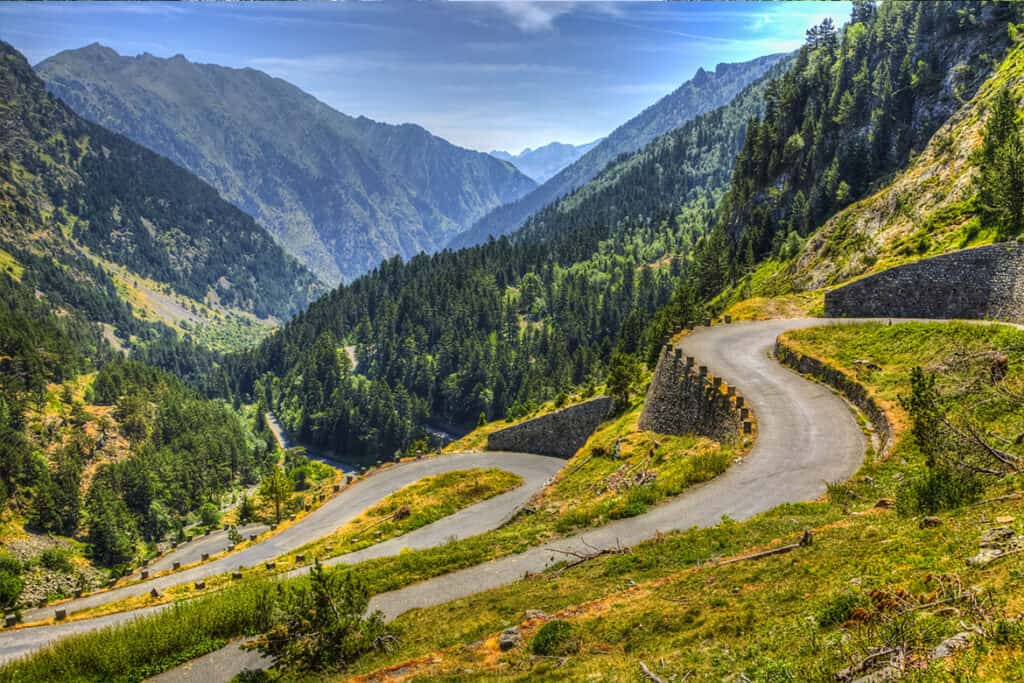
Motorcycle campsites in France
Like in the UK, campsites in France vary in quality and price. Some campsites have great facilities, like swimming pools or a beach on a lake, watersports, play area, restaurants, fresh bread delivery, shop etc.
Others are more rustic and aren’t much more than an aire with an attendant. Expect the facilities at cheaper campsites to be much lower in hygiene standards than you might be used to!
There are some gorgeous campsites in France, right by beaches and lakes, with swimming pools, evening entertainment and kids clubs. If you want a relaxing holiday whilst staying in your own van and enjoying the sunshine, this might be the best option for you.
They work much like in the UK- you arrive, check in (and will usually need to show a passport), are given or can select a pitch with or without electric (depending on what you booked) and that’s it.
Expect some campsites to keep your passport for the duration of your stay with them. This is often at the places where you haven’t paid in advance- I always try to pay in advance and keep my passport where I know it’s safe!
Dogs are normally always welcome on campsites, but there isn’t always a dog walk/ run where they are allowed off lead.
Because we rarely plan a route through France, and therefore we never know where we’re going to be, we book campsites at the last minute- or just turn up. This doesn’t always work, (especially in August or between October-March when many campsites shut) but there always seems to be something around which works out.
France motorcycle travel in the school holidays- or not?
If you’re travelling in the school holidays, you’ll want to book up the campsite (if you’re using one) asap- the best ones get booked up months in advance.
If you’re NOT travelling during the school holidays, you might want to consider getting an ACSI camping card– you’ll save a lot of money on campsite charges.
Getting Fuel in France
Many people worry whether they should fill up in UK or France.
In our experience, France is often a little cheaper, BUT there are often has fuel strikes. We ALWAYS fill up in the UK before we go… just in case.
Driving tips for France motorcycle travels
France is generally not too bad for drivers (at least, not compared to motorcycling in Portugal or Italy!) The scariest thing about driver in France are the… ummm… older generation who don’t realise that priorite a droite is no longer a thing (more on that below!)
Some quick tips for driving in France:
- France drives on the right, like much of Europe
- Dipped headlights are compulsory during the day
- Helmets and gloves are compulsory
- Wearing earphones or buds is illegal, but intercoms/ bluetooth systems are not. Playing music is also banned, even through bluetooth headsets.
- Avoid driving in Paris. At all times. In any vehicle.
- The maximum speed for private vehicles under 3.5t is 130kph (81mph) on motorways but speed limits are lower for cars towing trailers
- If driving through towns and villages, only use the horn in an emergency.
- Buses and trams have right of way.
- In-car speed camera detectors and motorcycle sat-nav systems warning of the presence of radars are illegal (whether they’re in use or not!)
- Using a mobile phone while driving is illegal, but you can use a hands-free unit without earbuds.
- Minor traffic offences can result in on-the-spot fines.
- UK driving licences are perfectly acceptable to use and you probably won’t need an IDP
Priorite a droite in France
France no longer has the stupid ‘prioritie a droite’ rule, (which meant you had to stop ON the roundabout for anyone coming onto it…!) HOWEVER, expect the occasional older French resident to merrily sail onto the roundabout and expect you to stop for them. It’s fun. Also, I believe it still exists in some places in France- like the Arc de Triomphe. Again- avoid Paris.
Speed limits in France
Speed Limits are determined by location, vehicle and weather and are as follows for motorcycles (unless otherwise signed!)
- 130 km/h (80 mph) on motorways
- 110km/hr (68mph) on major roads
- 90 km/h (50 mph) on minor roads (out of town)
- 50 km/h (31 mph) in built-up areas
- In rain or snow conditions (or if you’ve had a licence for less than 3 years), the limit is lowered to 110 km/h on motorways and 90 km/h on trunk roads- this WILL NOT be signposted- you’re expected to know it
Beware of parked cars on the sides of fast roads
Entrapment is allowed in France and police will regularly park an old car at the side of the road with a hidden camera in it, and then they’ll pull you over further down and give you a speeding ticket.
Speed camera warnings in France
If you see a sign for a speed camera, there’s nearly always a camera within a mile for sure. Also, be careful near a toll station (peage); they regularly put speed cameras within 10kms of these.

Filtering in France- is lane splitting legal?
Since February 2016, it’s been legal for motorbike riders near Paris, Marseille, Bordeaux and Lyon to ride between stationary lines of traffic.
However, it is only allowed on dual-carriageways and motorways AND when traffic in all lanes is at a standstill.
Elsewhere in France the practice is still considered illegal- and it’s not clear where the law starts and ends. Our advice is to proceed with caution and follow a local at your own risk.
Tolls in France
Yes, motorcycles have to pay tolls in France.
France, like nearly all countries in Europe which don’t have a vignette system, has tolls on its major roads. You collect a ticket at the machine as you enter the road system and pay (either a person or machine) at the end in cash or on a card. Tolls in France are one of the most expensive in Europe (just be grateful you’re not motorcycling in Norway!)
Depending on your route, a trip from Calais to Biarritz will cost around 58€ by motorcycle. You can calculate the toll cost of your intended route here.
You can use a tollpass/ telepass (like e-Movis) which is a complete pain on a bike, PLUS you could be wrongly chargesd as a car. Even the toll companies don’t recommend them for motorcycles.
Carrying and paying cash or card is a lot easier- always best to go to a lane with an actual person in it. Signs indicate the means of payment accepted on each lane.
Riding in France- what to do in the event of a road traffic accident
You should have a European Claim Form provided by your insurer before you leave. In the event of an accident, all parties complete and sign the form at the scene and then send a copy to your insurer for assessment. Don’t sign anything unless you are happy with what it says.
What to do at the scene:
- Stop your vehicle immediately but safely- out of the flow of traffic if possible.
- If a vehicle is blocking the road, use hazard lights and put the red warning triangle 30 metres from the scene to warn approaching traffic
- Exchange your details with the other involved parties. Be sure to get:
- Name and address of all the people involved in the accident
- Vehicle registration numbers of all parties
- Insurance company details of all parties
- Take photos of damage using a camera, GoPro or phone
Motorcycling in France- security
We highly recommend paying extra attention to your motorbike security when travelling in France, as motorcycle thefts do happen, as does petty theft and pickpocketing. I know it’s not always possible, but try not to leave your bike unattended in an unsecured area.
More useful things to know when motorcycling in France
Emergency Numbers: 112 will get you everything you need.
Language– French. English usually spoken in campsites and in tourist areas, but not often elsewhere.
Currency– Euro
Cards– most major credit and debit cards are accepted. American Express is only taken in large stores (not at tolls and often not at fuel stations)
Timezone– GMT+1 (or one hour ahead in BST) France is always one hour ahead of the UK, no matter what. Their clocks go forward and back whenever ours does.
Tipping– If you decide to treat yourself to a meal out, most restaurants will include a tip in the bill. Otherwise, 10-15% is standard. Coffee shops and lunchtime eateries often don’t include a tip, so check your bill before paying.
Shops– Many shops close on Sundays. Bigger supermarkets may be open, but will close at lunchtime. If bakeries open on Sundays, they are often closed on Mondays instead. Many shops and businesses also shut for a long lunch (between 12-2pm) and some will not open on Wednesday afternoons.
Touring France with a dog
France is pretty dog-friendly and they are widely accepted on public transport. Take a muzzle and their pet paperwork, such as the AHC- although we’ve never been asked to show this.
We also found dogs were allowed on the beaches except in high season, which makes sense and they’re often allowed in restaurants if they’re well-behaved and on a short lead.



Kat has spent years touring the UK and Europe by motorcycle, car and motorhome. It was the idea of motorcycle touring which pushed her to go from nervous new biker to excited explorer and she still can’t believe some of the crazy mountain roads she’s ridden!
She has owned several bikes, with her favourites being a Triumph Scrambler for long rides and her current speed demon- a ZX6R (both purple!) Whilst she loves to travel, her favourite thing is to help other bikers (both male and female) gain the confidence to have their own epic adventures. Ride safe!
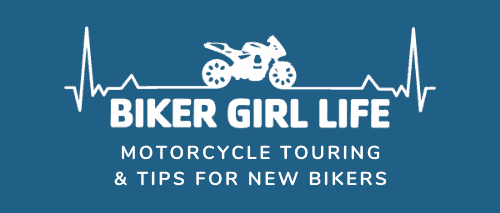
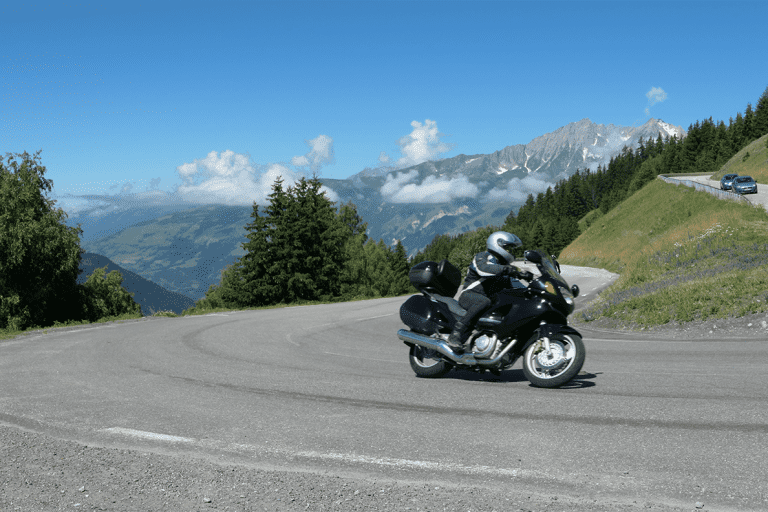

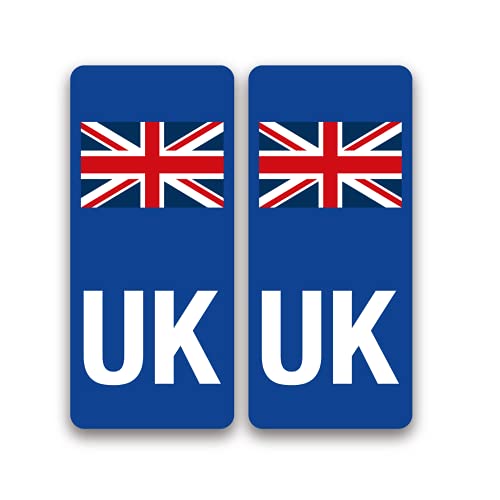


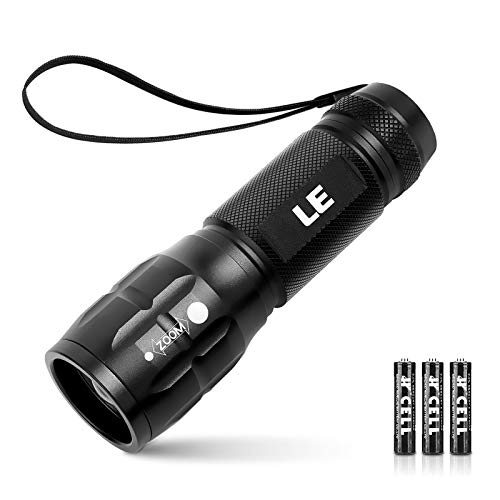
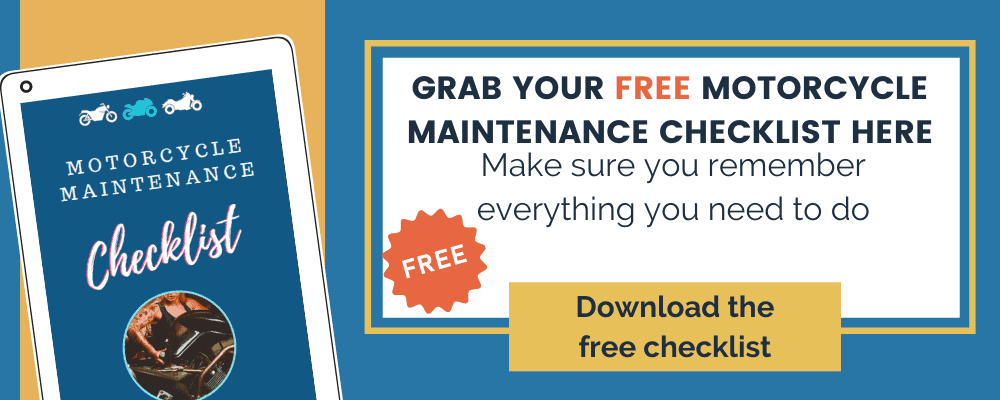
Thank you lots of great information.
You’re very welcome. Glad it was helpful
Great piece to read… Lots of info.
Looking forward to my trip now.😁
One typo… On your road speed limits section, your mileage is wrong beside the 110kph for major roads !
With all that info, you’re not doing too bad with just that 😂
Thanks again
Ha- thank you for letting me know. Glad you found it useful. Have a great trip.
Best summary I read so far. Many thanks and have a great trip!
Thank you- glad it was useful. 🙂
Forgot something.
How is the roadquality in France?
Im touring a sport touring tire (Michelin Road 5).
Will that be sufficient or should I go for a touring tire which is more resistant to defects?
Great question. Like all countries, some roads are rubbish, and some are lovely. We actually find most of France has much fewer potholes than the UK, with the exception of very rural France (but that could be down to where we ride in the UK!) We’ve toured on both Triumph Scramblers and our Kawasaki ninjas, which are mainly track bikes (with sports tyres) and both were fine. We actually took the ninjas into the Pyrennees on track tyres… not sure I’d recommend that! Your sports tourers should be absolutely fine but if you know you’re planning to do anything involving mountains, rural France or off-roading, you might prefer a more robust tyre.
Wow this was really helpful thank you so much. We are off to France in June riding from calais to Menton and back with stops. We are looking into popping over to Italy while in menton but its hard to find costs crossing the border. Do you have any info on this please? X
Hi Lauren. So glad you found it helpful. 🙂 Do you mean the cost to cross the border from France to Italy? If so, there isn’t any, unless you use the tunnel at Chamonix. But the road near Menton is totally free. Have an awesome trip.
Thank you so much 😁 x
You’re very welcome. x
we will be in lyon in late october and hope to find someone that can take us on a 3-4 hour guided ride into the surrounding countryside. do you have anyone we can contact or might know of someone? thanks
The peage (toll roads) are a pain if you are using cash or card (stop, gloves off, fumble, drop coins) but a delight with a Ulys sensor. I keep the sensor in a sleeve pocket on my jacket.
Just drive through at 20 mph, barrier flips up and away you go without stopping. And you will be correctly charged as a motorbike.